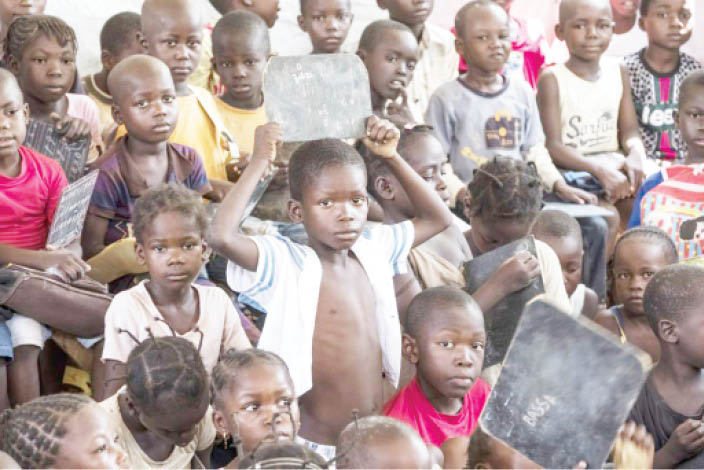I am a child, not a weapon
My name is Hadiza…Remi…Chinasa. I am a child. I am not a human weapon. On June 17 this year, locals were watching a football match at a viewing centre in Konduga, Borno State. Then a bomb blast went off. The explosion killed 30 people, and 40 others were injured. The bombs that exploded came strapped […]

My name is Hadiza…Remi…Chinasa. I am a child. I am not a human weapon.
On June 17 this year, locals were watching a football match at a viewing centre in Konduga, Borno State.
Then a bomb blast went off. The explosion killed 30 people, and 40 others were injured.
The bombs that exploded came strapped to three people, three children: two girls and a boy. They are children like me.
It is not the first-time children have been used in conflict both in combat and non-combat roles. The trend is rising in the North East of Nigeria.
There, Boko Haram, the insurgent group that vows that western education is forbidden has been doing a lot of it recently.
Their name translates as just that.
On June 17, the United Nations Children’s Fund sent condolences to all those killed or injured in the “horrific incident”.
“It is unacceptable that children should be used in this way,” it said. “UNICEF appeals to all those involved in this terrible conflict to protect children at all times and to keep them out of harm’s way.”
The horrific incident in June in which children were used as human bombs is not the first. Between January and June this year, five children have been used as human bombs.
Last year, 48 children including 38 girls were used in suicide attacks.
“We again call on all parties to the conflict in northeast Nigeria to immediately cease all attacks against civilians; to stop using children in this conflict, and to abide by their obligations under international humanitarian law,” the fund said.
This is the 10th year the insurgency in the north-east of Nigeria has raged on. Many have been killed, maimed, displaced.
First by violence, not from state groups, but groups described as “non-state” but “armed”. Then by counter-attacks by state groups.
Since 2012, non-state armed groups in north-east Nigeria have recruited and used children as combatants and non-combatants, raped and forced girls to marry, and committed other grave violations against children.
Some of the girls become pregnant in captivity and give birth without any medical care or attention.
These are stories I will elaborate on later.
In the ongoing armed conflict in north-east Nigeria, more than 3,500 children were recruited and used by non-state armed groups between 2013 and 2017.
By 2018, a total 48 children were used to carry and detonate bombs—38 girls and 10 boys.In the year before that, the number of children used to carry and detonate bombs was 146 – 45 boys and 101 girls.
This year alone, two girls have been used. A case in point is the explosion at the football viewing centre in Konduga that I mentioned earlier.
The Special Representative of the United Nations Secretary-General for Children and Armed Conflict reported these violations to the UN.
UNICEF continues to work closely with state authorities and partners to support the reintegration of children who have been associated with this conflict back into their communities and reunite them with their families.
“While governments of the world have made progress to recognize children have no place in their armies, the recruitment of child soldiers is still a huge problem, especially with armed groups,” said Leila Zerrougui, the Special Representative of the Secretary-General for Children and Armed Conflict.
Zerrougui stated this in comments marking International Day Against Use of Child Soldiers in 2015.
UNICEF said, armed conflict in the northeast of Nigeria throughout last year was “one of the world’s deadliest for children.
Several countries have signed up to treaties to keep children out of conflict. Signing the treaties and agreements is not enough. The agreements need to be implemented.
My name is Hadiza…Remi…Chinasa. I am a child. I am not a human weapon.
